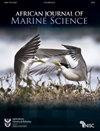Evaluating the evidence for ecological effectiveness of South Africa’s marine protected areas
IF 1.4
4区 生物学
Q3 MARINE & FRESHWATER BIOLOGY
引用次数: 24
Abstract
We reviewed 140 papers to assess the ecological effectiveness of South Africa’s marine protected areas (MPAs). Evidence was assessed for coverage and representivity, protection of important biodiversity areas, other recognised elements of effectiveness, connectivity, and ecological effects—from the scale of individual MPAs to the MPA network scale. We conducted complementary novel analyses to supplement the review and to objectively determine where and how the MPA network can be improved. Evidence shows that South Africa’s MPAs now provide some protection to all ecoregions and 87% of ecosystem types but to less than 50% of assessed species groups. MPAs are generally well-sited, but gaps were revealed on the west coast and in estuaries, the deep sea, and two ecologically and biologically significant areas. Enforcement emerged as a key concern, and many MPAs could be improved through expansion or by increasing no-take areas. The majority of relevant papers recorded beneficial ecological effects, detectable as increases in parameters such as the abundance, biomass, sizes or reproductive output of species. Few papers examined whether ecological benefits translate into adjacent fisheries benefits, but all those that did recorded positive effects. Full protection was more effective than partial protection, with effectiveness most clearly demonstrated for vulnerable target taxa. Further research and monitoring to achieve evaluations of effectiveness are recommended, with greater focus on neglected MPAs and species. Understanding the ecological connectivity between MPAs, an important dimension for climate-change adaptation and hence for the persistence and resilience of South Africa’s marine biodiversity, is identified as a key area for future research and inclusion in MPA planning.评估南非海洋保护区生态有效性的证据
我们审查了140篇论文,以评估南非海洋保护区的生态效益。从单个海洋保护区的规模到海洋保护区网络的规模,对证据的覆盖率和代表性、重要生物多样性区域的保护、其他公认的有效性要素、连通性和生态效应进行了评估。我们进行了补充性的新颖分析,以补充综述,并客观地确定在哪里以及如何改进MPA网络。有证据表明,南非的海洋保护区现在为所有生态区和87%的生态系统类型提供了一些保护,但为不到50%的评估物种群提供了保护。海洋保护区的位置通常很好,但在西海岸、河口、深海以及两个具有重要生态和生物意义的地区发现了缺口。执法成为一个关键问题,许多海洋保护区可以通过扩大或增加禁捕区来改善。大多数相关论文记录了有益的生态影响,可以通过物种的丰度、生物量、大小或繁殖产量等参数的增加来检测。很少有论文研究生态效益是否转化为邻近的渔业效益,但所有这些论文都记录了积极的影响。全面保护比部分保护更有效,对脆弱目标类群的有效性最为明显。建议进行进一步的研究和监测,以实现有效性评估,更加关注被忽视的海洋保护区和物种。了解海洋保护区之间的生态连通性是适应气候变化的一个重要方面,也是南非海洋生物多样性持久性和复原力的一个关键方面,被确定为未来研究和纳入海洋保护区规划的一个重点领域。
本文章由计算机程序翻译,如有差异,请以英文原文为准。
求助全文
约1分钟内获得全文
求助全文
来源期刊

African Journal of Marine Science
生物-海洋与淡水生物学
CiteScore
2.60
自引率
16.70%
发文量
17
审稿时长
6-12 weeks
期刊介绍:
The African (formerly South African) Journal of Marine Science provides an international forum for the publication of original scientific contributions or critical reviews, involving oceanic, shelf or estuarine waters, inclusive of oceanography, studies of organisms and their habitats, and aquaculture. Papers on the conservation and management of living resources, relevant social science and governance, or new techniques, are all welcomed, as are those that integrate different disciplines. Priority will be given to rigorous, question-driven research, rather than descriptive research. Contributions from African waters, including the Southern Ocean, are particularly encouraged, although not to the exclusion of those from elsewhere that have relevance to the African context. Submissions may take the form of a paper or a short communication. The journal aims to achieve a balanced representation of subject areas but also publishes proceedings of symposia in dedicated issues, as well as guest-edited suites on thematic topics in regular issues.
 求助内容:
求助内容: 应助结果提醒方式:
应助结果提醒方式:


